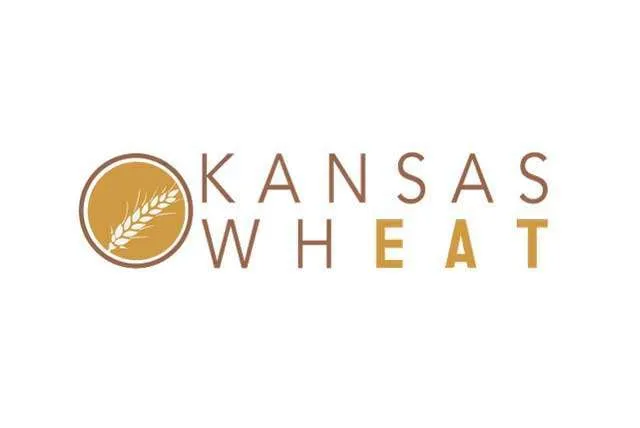Despite battling dry planting conditions, a wet spring and hail damage — just like Kansas producers — the wheat research team at Kansas State University collected enough data to advance two breeding lines to seed production ahead of a potential variety release in 2022.
“The K-State wheat breeding program is at the heart of wheat production in the United States,” said Aaron Harries, vice president of research and operations for Kansas Wheat. “The world-class program has tremendous producer support because of the consistent release of ever-improving options of wheat varieties, whether it is improved disease and pest resistance or increased yields.”
The potential wheat varieties result from the long-running breeding program at the K-State Agricultural Research Center at Hays, led by Dr. Guorong Zhang, Kansas State University wheat breeder, and his team. The program — supported financially by Kansas wheat producers through the Kansas Wheat Commission — focuses on the development of new and improved varieties of both hard red winter (HRW) and hard white (HW) winter wheat for western Kansas.
“Our goals in the breeding program are to develop new wheat varieties that give Kansas producers top agronomic performance and provide protection from major pests and diseases,” Zhang said. “It is imperative that the varieties we develop also meet the quality demands of our domestic and international customers.”
Western Wheat Trials Faced Difficult Weather Challenges
The western Kansas breeding program conducted trials at eight locations in Ellis, Thomas, Finney, Pawnee, Ness, Graham, Kiowa and Decatur counties. Researchers planted trials under the same challenging conditions Kansas producers faced this growing season. The crop year started with marginal soil moisture at planting. Zhang reported the ground was so hard at the Graham County location that the small test planter had difficulty penetrating the soil, which led to poor stands in the fall.
Following the dry fall and winter, the wet, cool spring equally caused issues, including delayed development and the need to spray fungicide to control stripe rust at most locations. Excessive moisture also downed plots at the irrigated trial in Thomas County. Hail caused severe damage at the sites in Ellis and Ness counties.
“In Ellis County, the hail not only ruined our yield trials but also damaged our early breeding populations,” Zhang said. “We salvaged as much as we could. We did lose two-thirds of the F3 populations and will need to replant our F4 populations next year.”
Other trial locations had great yields. For the Kansas Intrastate Nursery (KIN), the average yield across the five dryland trials (Thomas, Finney, Pawnee, Kiowa and Decatur counties) was 106.1 bushels per acre, with most trials averaging more than 100 bushels per acre. The trial in Kiowa County had the highest average test weight at 62 pounds per bushel.
Two Elite Lines Identified for Potential Release in 2022
An elite line of HW wheat — KS18HW106-4 — was the top-yielding line in the five dryland trials that were harvested. This line has been tested for the last five years, with one trial year (2017) data unavailable due to hail damage. The four-year average yield across 17 trials in western Kansas was 87.7 bushels per acre, which was greater than the check varieties Joe, Langin and WB-Grainfield. During these trials, the line has also demonstrated good drought tolerance and resistance to wheat streak mosaic virus and stem rust, moderate resistance to stripe rust and intermediate resistance to barley yellow dwarf virus. Compared to Joe — the most grown HW wheat variety — the line also has improved straw strength, pre-harvest sprouting tolerance and baking quality.
“This exception line of hard white wheat yielded seven bushels more this year than the highest-yielding check variety — Joe,” Zhang said. “This line was approved for seed increase and will be a potential release for western Kansas in 2022. If it is released, it will potentially be an even better variety for producers and end-users than Joe.”
An elite line of HRW wheat was also approved for seed increase this year — KS18H111-3. In two years of trials in 13 locations, the line yielded an average of 86.0 bushels per acre. In 2018 — the dry year — this line also indicated good drought tolerance. The line has a very good disease package with resistance to wheat streak mosaic virus, stem rust and Hessian fly. The potential variety also had moderate resistance to stripe rust and intermediate resistance to Triticum mosaic virus (TriMV) and barley yellow dwarf virus. Additionally, this line has improved straw strength.
“This hard red winter wheat did a little above average this year, but over two years, it has yielded greater than all other check varieties except Joe,” Zhang said. “This line will be another potential release for western Kansas in 2022 and, if released, will be a good improvement in disease and lodging resistance.”
The K-State wheat breeding program at Hays is supported by the Kansas Wheat Commission, Kansas Crop Improvement Association and Kansas Wheat Alliance. With all these resources combined, the program continues its tradition of providing great wheat varieties designed specifically to meet the needs of Kansas wheat producers and their customers.
“No matter how changeable the weather is during the growing season, our research program is always gaining valuable information about the lines across our testing locations,” Zhang said. “From hundreds of initial crosses made in our fall and spring greenhouses to genotyping breeding lines to putting these lines to the test in field settings, we continue to advance Kansas wheat varieties that have real value to producers and end-users.”
Learn more about what takes place in the time between an initial cross to the release of a new wheat variety at https://www.grains.k-state.edu/facilities/wheatqualitylab/ksuwheatbreedingprogram.html.
###
Written by Julia Debes for Kansas Wheat



